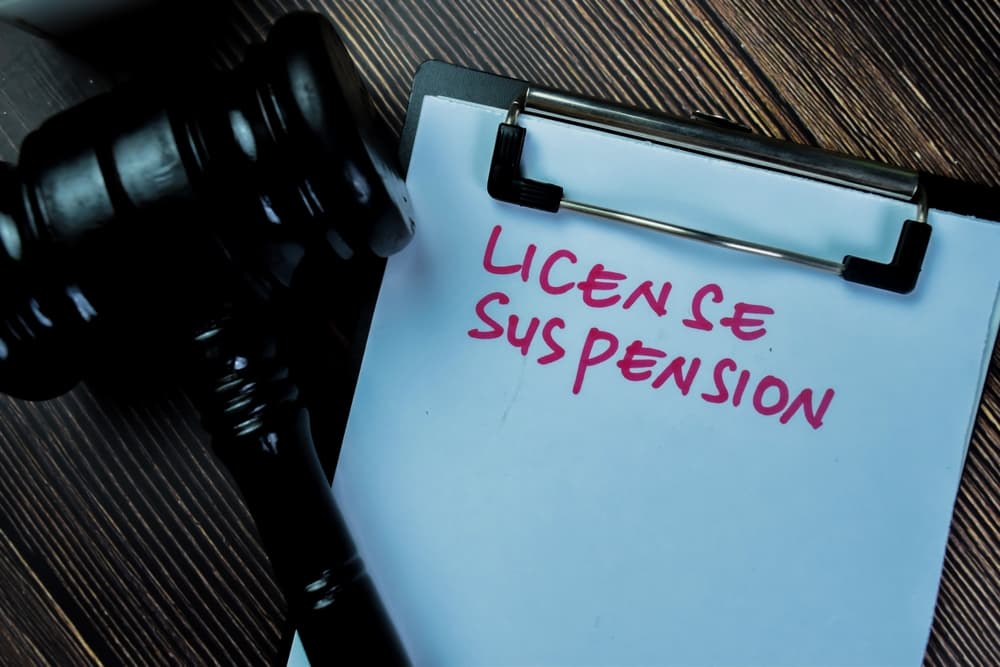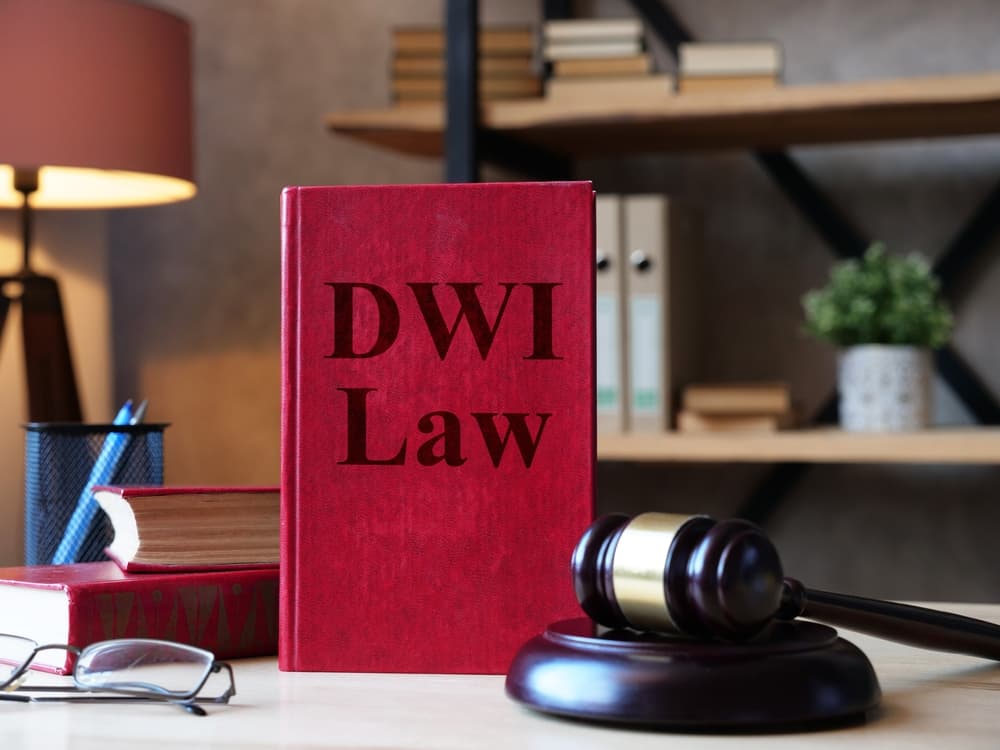In Texas, a DWI (Driving While Intoxicated) charge carries serious consequences that extend beyond fines and potential jail time. For professionals, a DWI can trigger disciplinary actions from licensing boards, leading to suspensions, revocations, or other penalties.
If you find yourself in this situation, you can protect your career. This article will guide you through the consequences of a DWI on your professional license and the steps you can take to mitigate the impact.
If you are a professional facing a DWI charge, it is imperative to seek legal assistance immediately. A DWI defense lawyer can provide you with the expertise needed to handle your case effectively. Contact us today at (325) 437-3311 for a free consultation and let our experienced team help you safeguard your career and future.
Understanding DWI Charges in Texas

In Texas, DWI is defined as operating a motor vehicle in a public place while intoxicated. Intoxication can be due to alcohol, drugs, or a combination of both.
The legal limit for Blood Alcohol Concentration (BAC) in Texas is 0.08% for drivers aged 21 and over. For commercial drivers, the limit is 0.04%, and for drivers under 21, any detectable amount of alcohol can lead to a charge under Texas's zero tolerance policy.
Legal Penalties for DWI
The penalties for a DWI in Texas vary depending on the severity of the offense and whether it is a first-time or repeat offense.
Here's a breakdown:
- First-Time Offense:
- Class B misdemeanor
- Up to $2,000 in fines
- 3 to 180 days in jail
- Driver’s license suspension for up to one year
- Annual fee of $1,000 to $2,000 for three years to retain driver's license
- Second Offense:
- Class A misdemeanor
- Up to $4,000 in fines
- 30 days to one year in jail
- Driver’s license suspension for up to two years
- Annual fee of $1,000 to $2,000 for three years to retain driver's license
- Third Offense:
- Third-degree felony
- Up to $10,000 in fines
- 2 to 10 years in state prison
- Driver’s license suspension for up to two years
- Annual fee of $1,000 to $2,000 for three years to retain driver's license
Aggravating Factors
Certain factors can lead to enhanced penalties, including:
- DWI with a child passenger: If authorities catch a driver driving while intoxicated with a passenger under the age of 15, they can be charged with a state jail felony, facing up to $10,000 in fines and 180 days to two years in state jail.
- Intoxication assault: Causing serious bodily injury while driving intoxicated is a third-degree felony.
- Intoxication manslaughter: Causing a death while driving intoxicated is a second-degree felony.
Professions Most Affected by DWI
Licensing boards and regulatory agencies for various professions may impose severe penalties on individuals with DWI charges.
Below are some of the professions most affected by DWI and the potential repercussions:
- Healthcare Providers: The Texas Medical Board may suspend or revoke the licenses of healthcare providers convicted of a DWI. Hospitals and clinics may terminate employment or refuse to hire individuals with DWI convictions due to concerns about reliability and professionalism.
- Legal Professionals: The State Bar of Texas may impose sanctions on attorneys convicted of a DWI, including suspension or disbarment. It can tarnish a lawyer's reputation, potentially leading to a loss of clients and diminished career prospects.
- Educators: The Texas Education Agency may revoke or suspend teaching licenses for educators with DWI convictions.
- Commercial Drivers: A DWI conviction can lead to the suspension or revocation of a CDL by The Texas Department of Public Safety, effectively ending a commercial driver's career.
- Pilots: The Federal Aviation Administration (FAA) requires pilots to report DWI convictions, which can lead to license suspension or revocation.
- Real Estate Agents: State real estate commissions may impose disciplinary actions on agents with DWI convictions, including license suspension or revocation.
- Financial Professionals: Regulatory bodies overseeing financial professionals, such as stockbrokers and financial advisors, may impose sanctions for DWI convictions.
How Licensing Boards Review Your DWI Case
When a professional is convicted of a DWI, their licensing board will typically review the case to determine appropriate disciplinary actions.
The review process involves:
- Notification of Conviction: Professionals may be required to report their DWI conviction to their licensing board. Failure to do so can result in additional penalties.
- Investigation: The board will investigate the circumstances of the DWI, including the severity of the offense, the professional's history, and any mitigating factors.
- Hearing: The professional may be required to attend a hearing where they can present their case, including any evidence of rehabilitation or mitigating circumstances.
Factors Influencing Disciplinary Actions
Several factors can influence the type and severity of disciplinary actions imposed by licensing boards:
- Severity of the Offense: Higher BAC levels, accidents, or injuries caused during the DWI can lead to more severe penalties.
- Prior Record: Previous convictions or disciplinary actions can result in harsher penalties.
- Mitigating Circumstances: Demonstrating remorse, rehabilitation efforts, and compliance with court-ordered programs can positively impact the board's decision.
Possible Outcomes
Licensing boards can impose a range of disciplinary actions depending on the case's specifics. Possible outcomes include:
- License Suspension: Temporary professional license suspension requires the individual to meet certain conditions before reinstatement.
- License Revocation: Permanent loss of the professional license, which can severely impact one's career.
- Probation: The professional may face probation, which can include regular reporting, additional training, or community service.
- Fines and Penalties: The court may impose monetary fines and other penalties in addition to any court-ordered fines.
Steps to Take After a DWI Arrest
Immediate and strategic actions are crucial in mitigating the impact on your professional license and overall career. We recommend that you take the following steps after a DWI arrest to protect your professional license:
Immediate Actions

- Contact a DWI Defense Lawyer:
- Why: A DWI defense lawyer can guide you through the legal process, protect your rights, and work to minimize penalties.
- How: Look for lawyers with experience in DWI cases and a good track record. The Law Offices of David M. White offer free consultations and can help you understand your options.
- Document the Incident:
- Why: Accurate documentation of the arrest details is crucial for your defense. This includes noting the time, location, circumstances, and any interactions with law enforcement officers.
- How: Write down everything you remember about the incident immediately. Include any witness names and contact information if available.
- Notify Your Licensing Board (if required):
- Why: Some licensing boards require immediate notification of any criminal charges. Failing to report can result in additional disciplinary actions.
- How: Check the reporting requirements of your specific licensing board. If required, notify them promptly and seek advice from your lawyer on how to proceed.
Legal Intervention
- Request an Administrative License Revocation (ALR) Hearing:
- Why: In Texas, you have 15 days from your arrest to request an ALR hearing to contest the suspension of your driver’s license.
- How: Your lawyer can help you file the request and prepare for the hearing. Winning this hearing can prevent your license from being automatically suspended.
- Prepare for Court Appearances:
- Why: Court appearances are critical stages in the legal process where your lawyer can argue on your behalf.
- How: Follow your lawyer’s advice on how to present yourself and what to expect. Be punctual and dress appropriately for all court appearances.
Compliance with Court Orders
- Participate in Court-Ordered Programs:
- Why: Compliance with court-ordered programs like alcohol education classes or community service can positively influence the outcome of your case.
- How: Attend all required sessions and diligently complete any community service hours. Provide proof of completion to your lawyer and the court. Understanding the regulations about driving after DWI can help you comply with court orders more effectively.
- Install an Ignition Interlock Device (if required):
- Why: An ignition interlock device (IID) may be required as part of your probation or bail conditions to prevent further incidents.
- How: Your lawyer can guide you on the installation process and how to comply with this requirement.
Mitigating the Impact
- Show Evidence of Rehabilitation:
- Why: Demonstrating proactive steps towards rehabilitation can be favorable during licensing board reviews.
- How: Enroll in alcohol or substance abuse programs, seek counseling, and maintain documentation of your participation and progress.
- Prepare a Mitigation Statement:
- Why: A well-prepared mitigation statement can explain the circumstances of the arrest, express remorse, and outline steps taken to prevent future incidents.
- How: Work with your lawyer to draft a statement highlighting your commitment to rehabilitation and professional responsibility.
Legal Representation and Communication
- Communicate Openly with Your Lawyer:
- Why: Transparency with your lawyer ensures they have all the information needed to build a strong defense.
- How: Share all details of the incident, any prior offenses, and your professional licensing requirements.
- Stay Informed About Your Case:
- Why: Understanding the legal process and staying informed about your case’s status can help reduce anxiety and prepare you for each step.
- How: Regularly communicate with your lawyer and attend all scheduled meetings and court dates.
How to Mitigate Long-Term Impacts
If you cannot win your DWI case, you can mitigate the long-term impacts if you:
Steps to Restore or Retain Your License
- Complete Court-Ordered Programs
- Importance: Compliance with court orders demonstrates responsibility and a commitment to rehabilitation.
- How: Attend all required alcohol education classes, substance abuse treatment programs, and community service. Keep detailed records of your participation and completion to present to your licensing board.
- Maintain Communication with the Licensing Board
- Importance: Regular communication can inform the board about your compliance and progress.
- How: Submit periodic updates and reports as required by the board. Ensure that all documentation is thorough and submitted on time.
- Seek Professional Counseling
- Importance: Addressing any underlying issues related to substance use can positively impact your personal and professional life.
- How: Engage in regular counseling sessions with a licensed professional and obtain documentation of your participation and progress.
Demonstrating Rehabilitation and Compliance
- Engage in Continuing Education
- Importance: Continuing education can demonstrate your commitment to maintaining professional standards and improving your skills.
- How: Enroll in courses related to your profession and provide certificates of completion to your licensing board.
- Participate in Community Service
- Importance: Community service shows a commitment to giving back and can positively influence the board’s perception of you.
- How: Choose community service activities that align with your profession or interests, and maintain records of your involvement.
- Build a Support Network
- Importance: A strong support network can provide encouragement and accountability during your rehabilitation process.
- How: Connect with professional organizations, support groups, and mentors who can offer guidance and support.
Long-Term Career Considerations

- Evaluate Career Path Options
- Importance: A DWI conviction may necessitate a reassessment of your career path and professional goals.
- How: Consider whether continuing in your current profession is feasible or if pursuing a different career path might be necessary. Seek career counseling if needed.
- Stay Informed About Changes in the Law
- Importance: Laws and regulations regarding DWI and professional licensing can change, affecting your options and responsibilities.
- How: Stay current with changes in state laws and licensing board regulations. Your lawyer can also provide updates and advice on how these changes may impact you.
- Consult with Legal Professionals Regularly
- Importance: Ongoing legal advice can help you navigate the complexities of maintaining your professional license.
- How: Schedule regular consultations with your DWI defense lawyer to review your compliance, progress, and any new legal developments.
Protect Your Professional License with David H. White
Navigating a DWI charge while protecting your professional license can be challenging, but you don't have to face it alone. The Law Offices of David M. White are here to provide expert legal assistance and ensure your career remains intact.
Our experienced team of criminal defense lawyers is dedicated to delivering top-notch defense strategies and personalized support to help you overcome this hurdle.
Contact the Law Offices of David M. White today at (325) 437-3311 for a free consultation and take the first step towards safeguarding your career and peace of mind.
